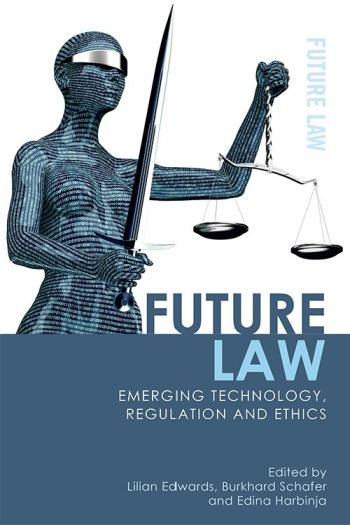
How can law ethically regulate a future of fast-changing technologies? From recent inventions to science fiction, Future Law explores how law, ethics and regulation must respond to new technologies that challenge the boundaries of our ethics.
The first part sets out some crucial underlying ideas about cyberlaw. How is the internet built, controlled and regulated? How might law respond to an entirely new technology such as teleportation? These questions are examined alongside issues of net neutrality, 24/7 surveillance and the internet of things. The book then analyses case studies of 'scary' new technologies, including autonomous vehicles, DIY genetics and artificial creation of human organs. Each of these technologies is on the cusp of becoming mass market, and this book explores how law and ethics are attempting to deal with their emergent phase. Finally, we look at technology regulation in a more legalistic framework, focusing on how we monetise new technologies within the context of privacy and surveillance, crime regulation, intellectual property and virtual property.
The conclusion looks forward to where law might go next and what clues we might have as to how to regulate new-phase technology such as the Singularity, artificial intelligence, telepathy and a blockchain world.